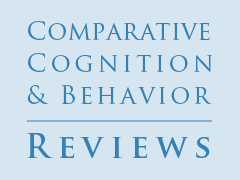Comparative Approaches to the Natural Ecology of Metacognition
Reading Options
Abstract
Most cognitive scientists assume that some, if not many, of our cognitive abilities evolved through natural selection. However, we lack the ability to assess causality concerning the natural selection processes that shaped human cognition. Elsewhere, we have argued that the road to understanding human cognitive evolution is through examining how natural ecology predicts changes in cognition across nonhuman species. However, this approach is not fully experimental, as it depends on the inferences that we make concerning correlations between natural ecology and behavior. The path to understanding human cognitive evolution is even more difficult when we consider that current functionality of our cognitive systems almost certainly does not entirely reflect their evolved functionality. Acknowledging the difficulty, we promote the view that we can understand natural selection of human cognition through the comparative study of animals and their natural ecology. In this article, we consider metacognition—the experience and knowledge of one’s own cognitive system—as a case example. We review the research on human and nonhuman primate metacognition with an eye toward what the comparative approach can tell us about the trajectory of the evolution of human metacognition. We advocate for an approach to metacognition that makes hypotheses based on the natural ecology of species and then applies those hypotheses to a wide range of species.
Keywords: comparative cognition, metacognition, evolution, natural ecology, fluency, primates, judgments

